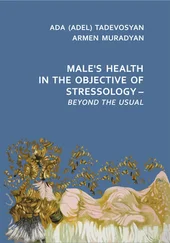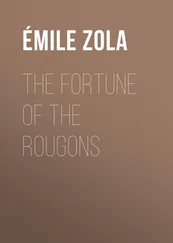“Who doesn’t know them? The Grodeck family!” He spoke these three words with solemnity, with respect, as though cowed by their importance: the Grodeck family. “Think carefully. It’s impossible not to have heard of them. Grodeck factories. Grodeck mills. Grodeck forests.” He was pensive for a moment, as though pondering it all. “Their fortune is huge.” He made this statement with boundless respect, with a sort of stunned terror. “I don’t know what’ll happen to the Grodeck family and all of their fortune if it ends up in Gunther’s hands. That lad’ll lay waste to it.”
“Is it his fortune?”
“Well, I don’t know the answer to that. No one does. When the Grodeck family wants to keep quiet, nobody gets a word out of them. Still, they say the fortune is coming to the boy. Look, when young Mrs. Grodeck died…”
“Gunther’s mother?”
“Yes.”
“She’s dead?”
“Yes. Last summer.”
Nora saw again in her mind the portrait on the bookshelf and remembered the boy’s intense stare. “Does she live here?” she had asked him. Now the question made her cringe. She would have liked to wipe it out of her memory and beg for forgiveness.
The man in front of her continued to tell his tale. It was obvious that the subject of the Grodecks fascinated him.
“When, as I was saying, young Mrs. Grodeck died, Gunther was in Munich. They say he was studying painting. They brought him home, but shortly after the funeral he left again. He fled. The family would have liked to keep him here and make an engineer out of him… The Grodeck family needs an engineer. A fortune like that doesn’t look after itself. But I’ll tell you, the boy’s crazy. He went up into the mountains to build the cabin you’re familiar with in the woods. From then on, nobody saw him. He didn’t receive visitors. That’s why I was so surprised when you told me you were staying there. I couldn’t believe it. If you’d known Old Grodeck…”
“Who’s Old Grodeck?”
“Gunther’s father.”
“Why do you call him ‘Old Grodeck’ and his wife ‘young Mrs. Grodeck?”
The question surprised him, and he became thoughtful for a moment. “You’re right. I’ve never thought about that. But they’ve always been called that in German. Der Alte Grodeck and Die Junge Frau Grodeck . I don’t know why. To tell you the truth, she wasn’t really very young and he wasn’t excessively old. They were first cousins who got hitched. All the Grodecks called her, ‘Miss.’ The fortune was hers, which is why people say it’s going to Gunther. For the time being, there’s no danger. As long as the lad’s a minor, Old Grodeck can do whatever he wants… After that it’s going to be more difficult, yes, after that…”
He blinked his small eyes and carefully rubbed his red beard.
“But what’s up with Hagen?” Nora asked, going straight to the point.
The man laughed again, with his odd laugh. “Did I say something was up with Hagen? Have you heard anything about him? Hah, lots of things have been said, but who’s to believe them…” He laughed fiendishly, the thick brows above his small eyes raised into a meaningful arch.
He took the axe, which he had propped up against the chair, and got up.
“I’m going to chop wood. I’ve talked plenty for today.”
From the SKV chalet a lateral trail opened through the woods towards the Glade of the Three Maidens, a smooth, even trail with benches along the edges like a path in a park. Snow had covered everything, burying the rocks and the benches. The wild, uncharted trail’s course through the pine trees could barely be discerned.
The slope was gentle, scarcely noticeable. Skiers headed out with a silky glide. There was no need either for braking or exertion. Nora and Paul descended at a short distance from one another, in silence. The curtain of clouds was falling lower on one side and the other, ashen, dense, stretching down to the ground like a wall. Braşov, Râşnov, all of the Burzenland, were on their right, covered in mist, vanishing into clouds.
In the morning they had left the cabin going north and now they had returned from the south. They almost didn’t recognize the cabin. Viewed from behind, it was bolstered by ramparts of snow, like a small fortress. Faffner barked, surprised to hear sounds coming from the deserted forest. Nora called out to him, and the dog recognized her. He came towards them, swimming through the snow, his muzzle poking up above the white drifts, struggling as though he were about to be submerged. Gunther, too, came out to meet them. He was pale and looked tired, but his eyes conserved a youthful twinkle that lighted up his whole face.
“If you’ve been ill, why are you going bareheaded in the cold?” Nora asked him. “Do you want me to scold you?”
“It’s not cold at all. But you can scold me. I like it. Nobody ever scolds me.”
His smile was luminous, childlike. Then it became dejected. He had these unexpected alterations of expression, from the greatest exuberance to silence.
“I have to ask your forgiveness for my behaviour. I’m acting like a badly brought-up host. But yesterday I couldn’t come downstairs. Thank you for staying here. I was uneasy all morning. I was afraid you’d left and that you weren’t coming back. I wanted to come after you, look for you, and ask you to come back. I don’t know where Hagen hid my skis… He always hides them on me… Without skis, in such deep snow, you’re stuck…”
He was dressed in a grey ski suit with large pockets. He’s too young for his clothes , Nora thought. She tried again to imagine him in a high-school uniform. It would have fit better with his childlike face, and the blond hair falling over his forehead that he kept brushing back with a gesture of boyish impatience.
“You’ll have to help me set the table,” he said. “Hagen is in Braşov. He went shopping. This evening you’ll have newspapers and cigarettes.”
“I’ll look after the table,” Nora said decisively. “You two behave yourselves and just stay where you are.”
She’s such a woman! Paul reflected. In a single instant, with adroitness and intimacy, she had become “the mistress of the house.” She seemed to know all these strange things, and acted as if they, too, were acquainted with her. She sliced bread with a domestic air, as though from familiar habit.
“Why didn’t you tell us that you were a painter?” Nora asked, as they were eating.
“Because I’m not.” The boy’s reply was almost a shout. A wave of blood rose into his pale forehead. His whole being trembled with rage, with resistance. Then, with the same change of expression, his face lighted up again in an ironic smile. “No, I’m not. I was. I wanted to be.”
There was silence. A heavy silence, that lasted for several long seconds, and which they didn’t know how to break.
Faffner arrived just in time to save them.
“Poor thing, he’s hungry. We have to give him food.”
In the afternoon, Nora remained alone with Gunther. Paul put on his skis and practised his turns close to the cabin. He took Faffner along to keep him company.
Gunther, in his armchair next to the fireplace, was scribbling on a notepad.
“I think I’ve made you angry,” Nora told him. “Please excuse me. They were silly questions that upset you and I didn’t even know why.”
The boy was calm. Without paying much attention, he was sketching a woman’s profile, which he left undefined. He started again in the other corner of the sheet. His smile was now devoid of sadness or irony. “I have to tell you something,” he said, “but promise me that you won’t be frightened.”
“I can’t promise, but I’ll try,” Nora joked.
Читать дальше












